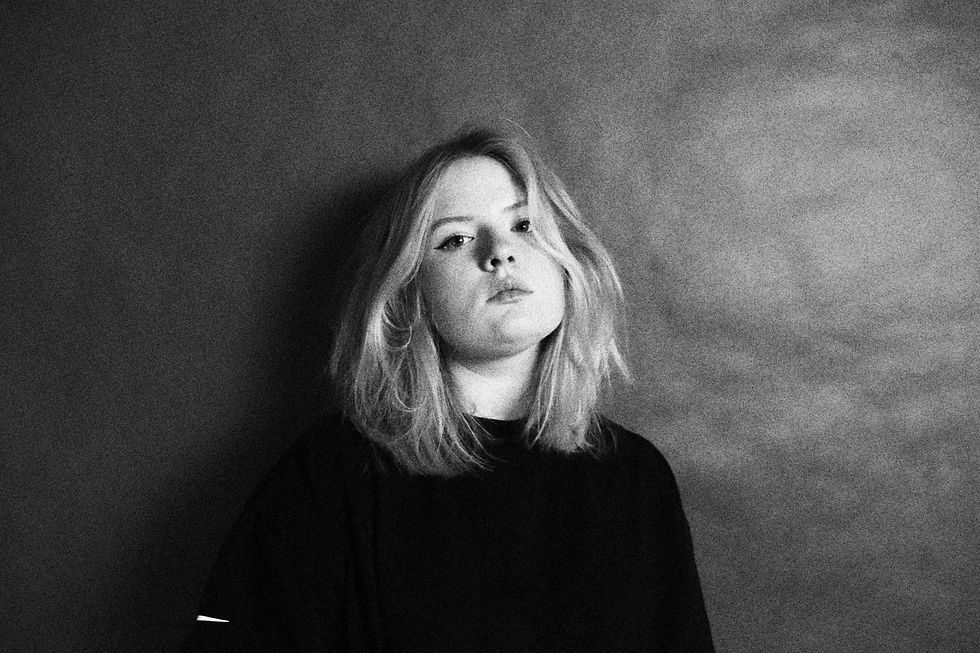Waving the Childfree Banner
- Pamela Fox
- May 3, 2021
- 3 min read
For The New York Times, Mary Katherine Tramontana introduces readers to Zoë Noble, a photographer who spotlights women who "opt out of parenthood."

What meanings lurk in the distinction between the words “childless” and “childfree”? The first is defined as "having no children or offspring," c. 1200, from child (n.) + -less.” (Online Etymology Dictionary); the second is a 21st-century term: “Also known as "childfree by choice," childfree simply means not wanting children and having no desire to take on the burdon [sic] of parenthood” (Urban Dictionary). While appearing neutral--the simple absence of offspring--”childless” also suggests a lack, a deprivation, a sorry state for the woman in question who is not a mother. It is never viewed as a “choice” but instead a kind of blight--an unfortunate medical condition, say, that results in infertility--or a selfish ‘pose’ that won’t last. Strangers, along with family and acquaintances, want to know why childless women of a certain age are childless.
In her New York Times article “In Her Words: ‘We Are Childfree,’” Mary Katharine Tramontana turns the tables by introducing one photographer whose recent portrait series spotlights women who actively “opt out of parenthood”: Zoë Noble, a British photographer working in Berlin. Spurred by her own condescending encounters with men--a physician, a taxi driver--who both put her in dangerous situations after learning that she was happily married without children, Ms. Noble sought out other like-minded childfree women to be subjects for her visual art and podcasts. She has elicited honest and moving personal narratives from women in their twenties to their late seventies who are hoping to debunk the woman = mother equation that fuels so many misogynist mythologies.
Tramontana provides a bit of that backdrop for her readers, noting that “Rhetoric about motherhood as an essential part of women’s lives can be found across the political spectrum”--from Ivanka Trump to Michelle Obama--and cites “[a] 2016 study on the stigmatization of child-free women and men in the journal ‘Sex Roles.’” More importantly, she shares the work of women who have paved the way for Noble, such as writer Meghan Daum, who edited the unapologetic essay collection Selfish, Shallow, and Self-Absorbed: Sixteen Writers on the Decision Not to Have Kids (2015), and counters the denigration of childfree women with more encouraging data: “About four in 10 U.S. adults under 50 without children said they didn’t expect to become parents, according to a 2018 Pew Research survey. And plenty of research suggests that nonparents tend to be happier than parents — especially in the United States.”
The article concludes by offering three condensed accompanying narratives and photos from the “We Are Childfree” series:
Guen Douglas (41), Berlin tattoo studio owner:
There’s this expectation that we must justify our choice. People ask, “Why not?” Why don’t we ask the other question: “Why are you choosing to have a child?” That’s the bigger question. Do you have the resources and emotional ability? Or is it just a shot in the dark because you feel you’re supposed to?. .. The world is overpopulated. We have a climate crisis. If someone says they don’t want kids, it should be like, “Cool” move on.
Lise Scott (38), nanny:
When I became a nanny I saw how hard it was and realized, children are great for a few hours, but no way am I having them. My mom said, “What about this hole in your heart?” I said, “I’ll buy a puppy or a really expensive piece of jewelry.” It’s egoist to want to procreate — I don’t need there to be another version of me. Or, because I love someone, why would I need to see what we can make together?
Marcy Mendelson, documentary filmmaker, photographer, and conservationist:
To be able to change your mind at a moment’s notice. To be free to develop yourself as a person, and not as a mother — that’s been great. I’m shocked that women still do the majority of child care. When people ask, “When are you going to have kids?” they can’t handle your freedom. If a woman is tied down with a bunch of kids, she can’t make too much trouble. They want you to be on their level, but don’t have the courage to say it. Men admit it when they check out and leave.
Zoë Noble is seeking more subjects for her series, so if you identify with this cohort, you can find the application here or in the original New York Times article.
You can also watch this quick Vimeo video
Have a response to this post? Share your thoughts!






コメント